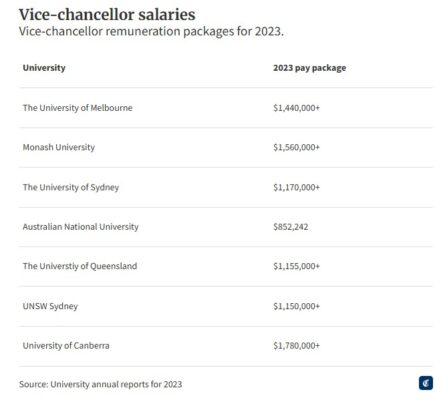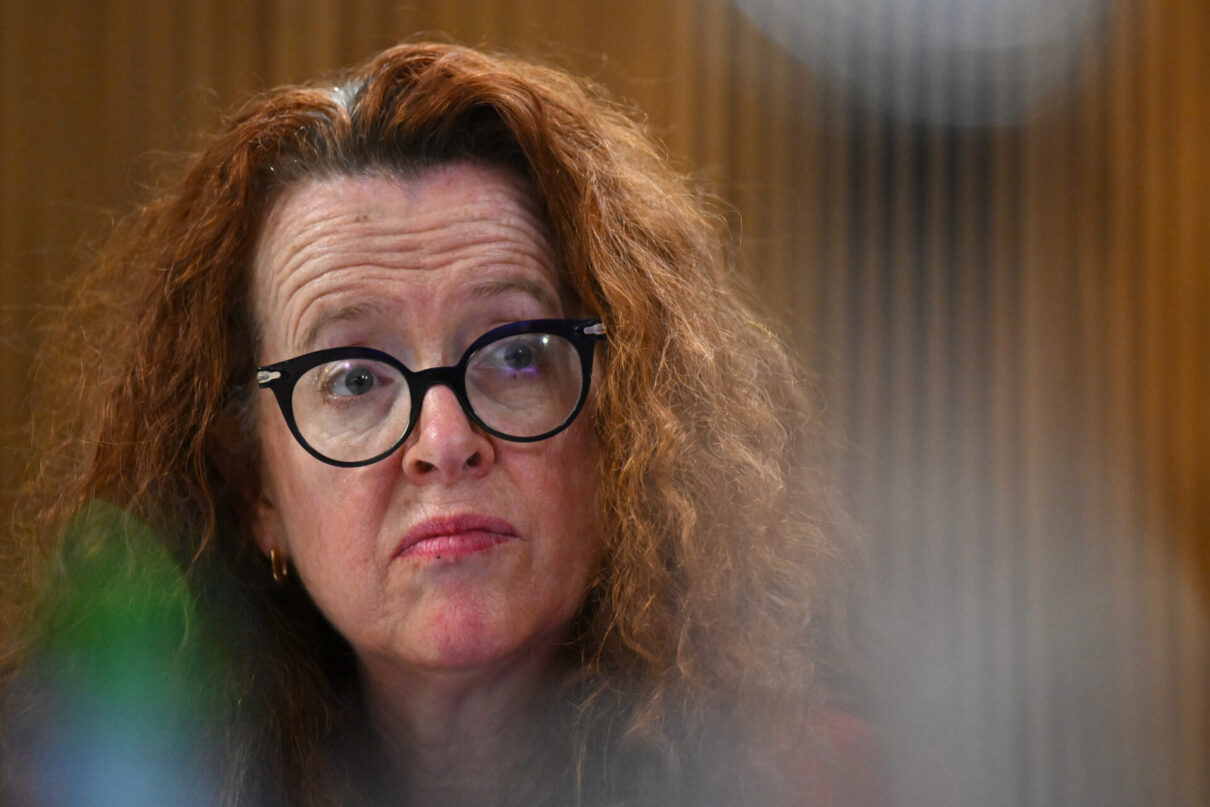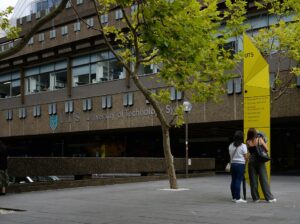Genevieve Bell, vice-chancellor of the Australian National University (ANU), has announced her resignation. Many will welcome this news.
Scandals have wracked Bell’s tenure, and a variety of surveys have shown widespread dissatisfaction with the ANU’s current leadership.
But the problems at the ANU are systemic.
They will not be solved with the departure of any one figure. Indeed, the governance crisis at Australia’s universities is sector-wide. In May, Dr Joshua Black and I wrote that the ANU’s rolling crises were predictable because they stem from its flawed governance structure.
Like all of Australia’s universities, the ANU lacks effective mechanisms for transparency, accountability, and representation. Every new scandal the sector has seen in the last four months is further proof.
The core problem is a vacuum of accountability. In the university sector, no one is held responsible for failure, at least no one at the top.
While vice-chancellors have CEO-like million-dollar pay packets, the university councils they answer to do not face nearly the same scrutiny as a public company’s board of directors.

A board of directors is elected by the company’s owners (shareholders). As these shareholders have a vested interest in the company’s commercial success, they are likely to vote out any directors who do not act in these interests.
Directors are also subject to strict legal duties to act in the best interests of the company; breaching these duties can result in significant fines or imprisonment.
What about university councils? To start with, most do not represent those with the greatest stake in their success.
Only about one in four positions on university councils are elected by staff and students.
Instead, most council positions are either directly selected by people already on the council or appointed by governments on the recommendation of council members.
This means councils are essentially self-perpetuating. Members are often drawn from the corporate sector and do not have genuine experience or understanding of the university sector’s peculiarities.
The simple truth is that most university council members do not have a material interest in the success or failure of the institution, and there are no mechanisms to hold them accountable.
They do not bear the costs if the university fails to provide a good education, quality research, or to treat their students and staff with care and respect. In the words of Dr Robert Czernkowski, an academic elected to the council of the University of Technology Sydney: “The core issue lies with external members of governing bodies. … With no ‘skin in the game,’ their oversight tends to be perfunctory, and their sense of accountability minimal.”
Instead, the main benefit that appointed members gain from their position is in being associated with a prestigious institution, which gives them the chance to network with other high-powered individuals.
In this context, it is not surprising that universities too often overlook their core functions of teaching and research, and instead prioritise fancy new buildings, flashy advertising, and lavish networking events for alumni and staff.
Regulators have failed to hold universities or university councils accountable. Even where a university’s governing legislation imposes board member-like duties on its council, penalties and enforcement do not come close to matching the corporate sector.
Meanwhile, the main federal regulator, the Tertiary Education Quality and Standards Agency (TEQSA), has remained weak and unable to halt the sector’s decline.
Amid this vacuum of accountability, governments have not taken responsibility for the sector, even though Australia’s universities are public institutions.
Though the Commonwealth is the principal public funder of universities, all universities except the ANU are jointly regulated at the Commonwealth and state levels.
This makes it easy for the Commonwealth and state governments to dodge responsibility for the sector’s failings.
The path to reform is clear. Australia’s public universities must be accountable to those with the most at stake from their success: the students whose future depends on the quality of their education; the staff who teach and conduct research; and the general public that funds them and benefits from living in a country with a world-class tertiary education system.
University councils need to be fundamentally restructured. The number of appointed members appointed needs to be reduced, and a majority of members on university councils should be elected by staff and students. The public interest in universities should be safeguarded through government-appointed council members, strong regulations, and powerful regulators.
The Commonwealth government has announced plans to strengthen TEQSA. This is a good start but there is further to go.
As proposed by Professor John Quiggin, the Commonwealth government should become both the principal public funder and regulator of the sector.
This would end blame shifting and make it clear who is responsible for the sector’s successes and failures.
These core reforms would be strengthened if universities made further changes to reinforce good governance in the sector. This could include requiring university councils to publish full meeting minutes and meet in public whenever possible.
Disclosure requirements for financial reporting and conflicts of interest could also be increased.
Bell’s departure is overdue, but her poor performance was more of a symptom than a cause of a crisis that afflicts many of Australia’s universities.
This should be the start, not the end, of a campaign to bring good governance to Australian universities.
Between the Lines Newsletter
The biggest stories and the best analysis from the team at the Australia Institute, delivered to your inbox every fortnight.
You might also like
Failing the test: Australian universities in crisis
Great countries have great institutions, but Australian universities are a mess.
Home economics: housing, living standards and the federal election
With housing affordability at an all-time low and the spectre of Trump looming large over our region, Australians’ standard of living will be at the heart of the debate from now until election day.
While university leaders zip around the world, consultants are creating twin crises on Australian campuses
University leaders are keeping their institutions in the news for all the wrong reasons. Yesterday, it was University of Technology Sydney’s (UTS) turn for a round of bad press.



